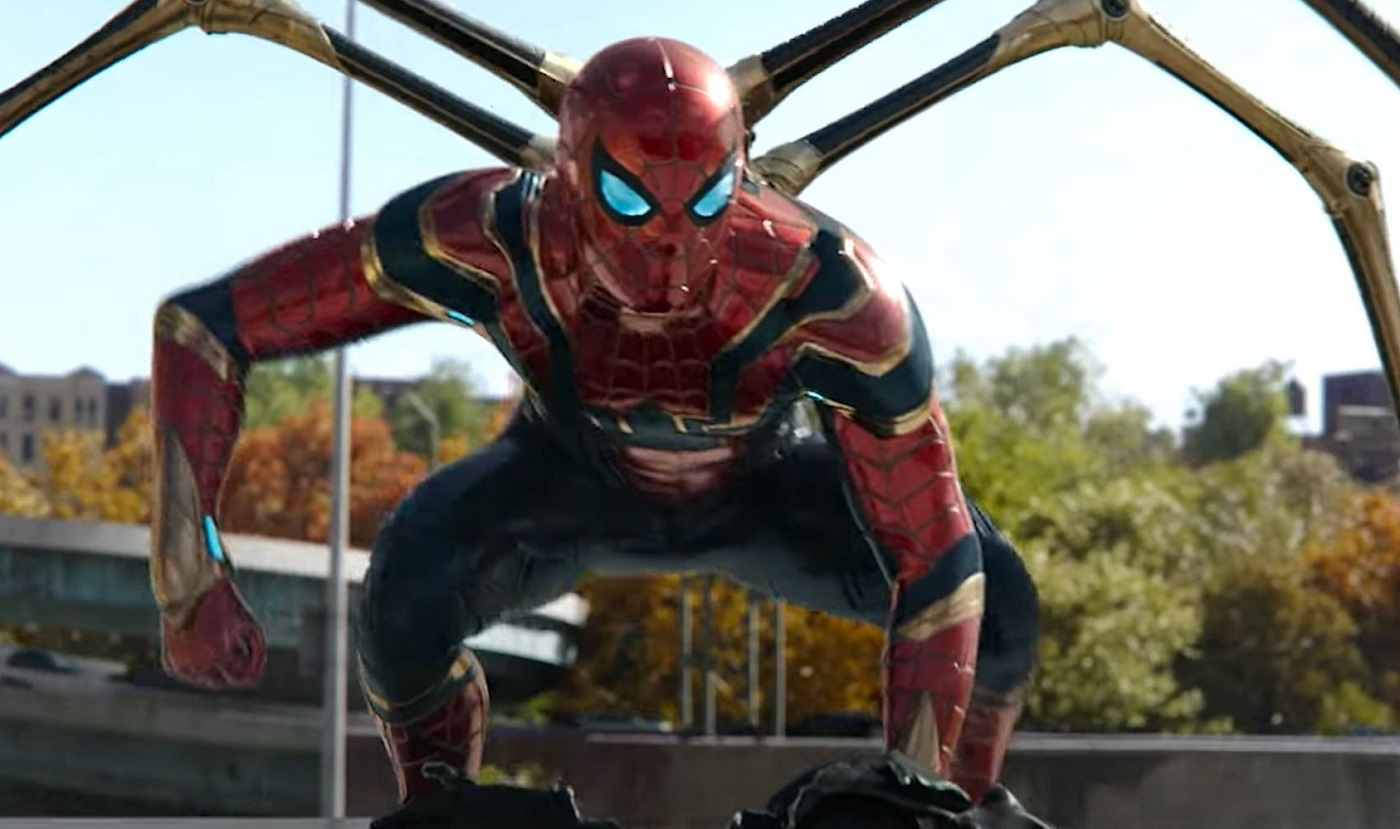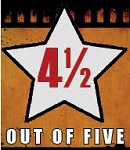The best thing that can happen to a big character-based franchise is that it's put into the hands of filmmakers who fully understand the character. Spider-Man: Homecoming and Spider-Man: Far From Home both strongly hinted that director Jon Watts and Marvel super-producer Kevin Feige had a good grasp on why Spider-Man is so beloved, but Spider-Man: No Way Home seals the discussion with authority. Those two guys — and anyone else in the credits who had a strong hand in conceiving this movie — clearly understand Spider-Man to his very core. They know why fans obsess over him nearly 60 years after his creation, and they channel all of it — his strengths, his weaknesses, his burdens, and his resilience — into what is certainly the ultimate Spider-Man movie, even if it might not be the best. (I have this, Sam Raimi's Spider-Man 2 and the animated, Miles Morales-centric Into the Spider-Verse all at 4 1/2 stars. The debate sprung from trying to definitively rank them could rage forever. Maybe we should just feel blessed we were gifted all three.)
No Way Home is a massive, emotionally exhausting movie that doles out excitement, humor, grief, and joy in unending waves and feels designed to overwhelm audiences until they have no choice but to completely succumb to it. It's a nostalgia machine — you knew this going in because the trailers all trumpeted the fact that No Way Home features villains from previous Spider-Man films (played by their original actors) squaring off against Tom Holland's MCU-based Peter Parker. Though you won't know how focused on nostalgia it is until you're in the theater watching, your jaw dropped as you try to process the love letter to the entire Spider-Man mythos that Marvel and Sony have created here.
The movie starts immediately following the end of Far From Home. Spider-Man's identity has been outed to the world, and the circumstances surrounding his highly destructive battle with Mysterio have led to a sizable portion of the New York City population turning against him. He's hounded by the media, and his classmates won't stop staring at him in school. The plans Peter, his girlfriend MJ (Zendaya), and his best bud Ned (Jacob Batalon) have to all attend MIT are thrown into disarray. Aunt May (Marisa Tomei) and Happy Hogan (Jon Favreau) could be in legal trouble. If only things could go back to the way the were before the world knew Peter was Spider-Man. Before you can say "abracadabra," Peter has the idea to approach his sorcerer buddy, Doctor Strange (Benedict Cumberbatch), and have him cast a spell that would lead to that very result. Unfortunately, Peter has some last-minute requests, and the two botch the spell, creating a rip in the multiverse that allows for characters from other Spider-Man film series to enter this one. To get any more into the plot past that would be criminal, but let's just say this setup leads to a full exploration of what it means to be Spider-Man and why the character continues to endure and inspire.
The cast of No Way Home is fantastic. Holland and Zendaya have settled into their roles so wholly and effortlessly that they now feel like the definitive versions of the characters. Batalon, who I thought was somewhat misused in Far From Home, is returned to his Homecoming pedestal here — a newly created Spidey character who feels like he always should have been around. Everyone is having a blast on the villain side of things, but, perhaps unsurprisingly, it's Willem Dafoe who steals the show. The trailers promised a Sinister Six-style team-up, but, as it turns out, there is a biggest bad here and he is the Green Goblin. As it ever was, as it always should be. Dafoe was ideally cast in the first Spider-Man back in 2002 and continued to make cameos throughout Raimi's trilogy, but it took nearly 20 years for him to fully show just how much he could do with the character.
I have a few minor quibbles. Despite the returning J.K. Simmons, this is probably my least favorite version of J. Jonah Jameson ever. He's a bit too mean, a bit too much of a plot device. We should also speak vaguely of the film's ending. I think it's going to be divisive, even if I also think it largely works. The interesting thing is that, while Watts, Feige, and company do a good job making sure that where this movie leaves everyone feels true to the Spider-Man character, it also sort of nakedly reveals the precarious, corporate situation behind this recent run of Spider-Man movies. The next Spider-Man installment could feature Holland and be MCU set. Or it could feature Holland and not involve the MCU at all. Or it could find an entirely new actor behind the mask. We don't even know which studio will be making it. The ending to this film feels backwardly conceived based off those behind-the-scenes facts. And yet even within those parameters, Watts and Feige make sure the characters and this world are properly taken care of by the time the theater lights turn back on.
Regardless of what happens next, Spider-Man fans everywhere should feel a warm satisfaction know that this trilogy exists and that Marvel and Sony wrapped it up with a film that doesn't just service its own characters and themes (which it totally does) but also serves as a monument to the character Stan Lee and Steve Ditko created so many decades ago. It does so beautifully and lovingly and earns every big swing it takes. It is amazing and spectacular. It is Spider-Man — the most selfless and virtuous of heroes, even if it takes some growing pains to get there — done perfectly right.













